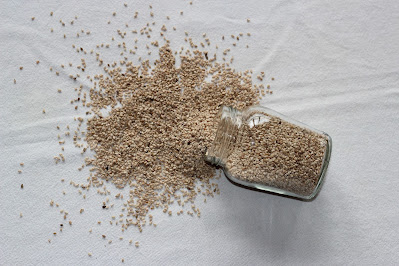Warming up before exercise is essential for several reasons. A proper warm-up can help to prepare your body for the physical demands of exercise and reduce the risk of injury. It can also help to improve your performance during the exercise session.
Here are some of the reasons why warming up before exercise is important:
Increases blood flow: A warm-up helps to increase blood flow to the muscles, which in turn helps to deliver oxygen and nutrients to those muscles. This can help to improve the efficiency of the muscles and reduce the risk of injury.
Increases body temperature: A warm-up raises your body temperature, which can help to increase the speed of nerve impulses and muscle contractions. This can help to improve your overall performance during the exercise session.
Prepares your heart and lungs: A warm-up helps to prepare your heart and lungs for the increased demands of exercise. It can help to gradually increase your heart rate and breathing rate, which can help to reduce stress on these organs.
Enhances joint flexibility: A warm-up helps to increase joint flexibility, which can help to reduce the risk of injury during exercise. It can also help to improve range of motion and joint function.
Mentally prepares you: A warm-up can help to mentally prepare you for the exercise session. It can help to increase your focus and concentration, and can help to reduce anxiety and stress.
Overall, a proper warm-up is an essential component of any exercise routine. It helps to prepare your body and mind for the demands of exercise and can help to reduce the risk of injury. A warm-up should include dynamic stretching, low-intensity cardio, and movement-specific drills that mimic the movements you will be doing during the exercise session.
Weight Loss For Occasions
Weight Loss For Occasions - All You Need To Know On Weight Loss, Belly Fat Loss, Lose Weight Fast, Lose Belly Fat Fast, Slim Flat Belly, Abs, Fitness, Gyms, Fit, Health, Yoga, Belly Fat Burning Foods, and Fat Burning Smoothies.
Wednesday, May 3, 2023
Warming Up Before Exercise Is Essential
Wednesday, April 26, 2023
Health And Weight Loss Benefits Of Pearl Barley
Pearl barley is a type of whole grain that is commonly used in soups, stews, and salads. It is made by removing the outer hull of barley and polishing the grain to give it a smooth, pearl-like appearance. Here are some potential health and weight loss benefits of pearl barley:
High in fiber: Pearl barley is a good source of dietary fiber, which can help improve digestion, reduce cholesterol levels, and promote feelings of fullness.
Low glycemic index: Pearl barley has a low glycemic index, which means it can help regulate blood sugar levels and reduce the risk of diabetes.
Rich in vitamins and minerals: Pearl barley is rich in vitamins and minerals such as B vitamins, iron, and magnesium, which are important for overall health.
Low in fat: Pearl barley is naturally low in fat, making it a good food for weight loss.
High in protein: Pearl barley is a good source of plant-based protein, which can help support muscle growth and repair.
Potential weight loss benefits: Pearl barley is low in calories and high in fiber, making it a good food for weight loss. It can help reduce appetite, increase feelings of fullness, and reduce calorie intake.
Overall, pearl barley is a nutritious food that can provide a range of potential health benefits. However, it's important to note that more research is needed to fully understand the extent of these benefits and how they may vary depending on individual health status and other factors.
Sunday, April 16, 2023
Turbo-Charge Your Weight Loss With Flax Seeds
Flax seeds, also known as linseeds, are small, brown or golden-colored seeds that are packed with nutrients and health benefits. Here are some of the benefits of flax seeds:
Rich in omega-3 fatty acids: Flax seeds are a good source of alpha-linolenic acid (ALA), which is an essential omega-3 fatty acid that is important for brain function and heart health.
High in fiber: Flax seeds are high in both soluble and insoluble fiber, which can help to regulate digestion, reduce constipation, and promote feelings of fullness.
Lowers cholesterol: The soluble fiber in flax seeds can help to reduce LDL (bad) cholesterol levels in the body, which can help to reduce the risk of heart disease.
May reduce inflammation: Some studies have suggested that the lignans in flax seeds may have anti-inflammatory properties, which can help to reduce the risk of chronic diseases such as arthritis and diabetes.
May lower the risk of cancer: Some research has suggested that the lignans in flax seeds may have anti-cancer properties, which can help to reduce the risk of certain types of cancer, such as breast cancer.
Good source of antioxidants: Flax seeds are a good source of antioxidants, which can help to protect the body from oxidative stress and reduce the risk of chronic diseases.
Flax seeds can help with weight loss in several ways. First, they are high in fiber, which helps to promote feelings of fullness and reduce overall calorie intake. Second, the omega-3 fatty acids in flax seeds have been shown to improve insulin sensitivity, which can help to regulate blood sugar levels and reduce cravings for sugary or high-carbohydrate foods. Finally, flax seeds are low in calories and can be easily incorporated into a healthy diet, making them a great addition to any weight loss plan.


